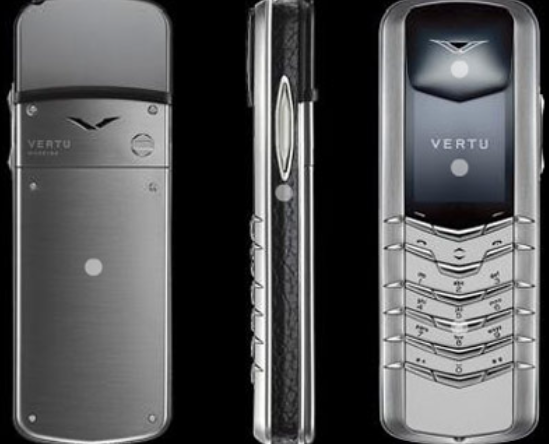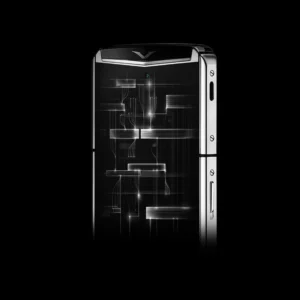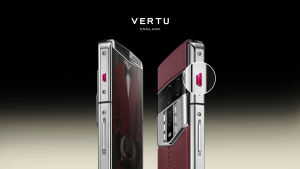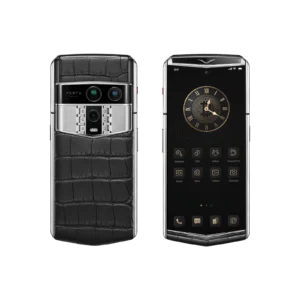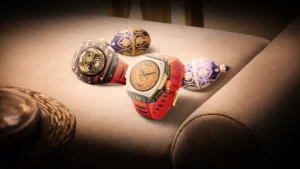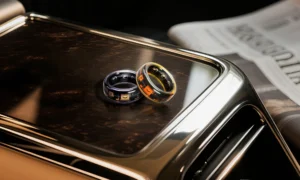In the rapidly evolving digital landscape of 2025, the Vertu Phone with Liquidmetal remains a fascinating case study in combining advanced material science with uncompromising luxury. While mainstream devices chase faster processors, Vertu focuses on tangible permanence. For high-net-worth individuals and technology connoisseurs, understanding the unique properties of Liquidmetal is essential to appreciating why these devices command such a premium. This guide explores the engineering marvel behind Vertu's choice of materials and its lasting impact on the luxury mobile market.
Understanding Vertu Phone with Liquidmetal: Beyond the Hype
At its core, Liquidmetal is not actually a liquid, but a revolutionary class of amorphous metal alloys (bulk metallic glass). Unlike varying traditional metals like aluminum or steel, which have a crystalline atomic structure, Liquidmetal retains a random, non-crystalline atomic structure even when solid. This unique state is achieved by cooling the molten alloy—typically zirconium-based—so rapidly that crystals cannot form. For a Vertu phone, this translates to a chassis that is more than twice as hard as titanium and incredibly resistant to corrosion and wear, ensuring the device retains its pristine, “just unboxed” finish for years, not just months.
The Core Benefits: Durability Meets Elasticity
Why utilize such an expensive material in a smartphone? The primary benefit of implementing Liquidmetal in a Vertu device is its extraordinary elasticity combined with high hardness. Standard phone metals dent upon impact because their crystal structures dislocate permanently. Liquidmetal, however, possesses a high “elastic strain limit,” meaning it can absorb significant impact energy and return to its original shape without denting. For the user in 2025, this means a Vertu phone dropped on a hard surface is far more likely to survive unscathed compared to a standard premium smartphone made of aluminum or stainless steel.
Implementation: Engineering the Unbreakable Chassis
Implementing Liquidmetal requires specialized manufacturing techniques far more complex than standard CNC machining. Vertu utilizes a form of injection molding similar to how plastics are shaped, but at vastly higher temperatures and pressures. This allows for incredibly precise, complex geometries that would be impossible to machine from a solid block of titanium. This is often seen in the intricate detailing of Vertu’s side rails, hinges (on folding models), and SIM card mechanism doors, providing a cool-to-the-touch, ultra-smooth surface that defines the tactile experience of luxury.
Measurable Results: Vertu Liquidmetal vs. Traditional Alloys
The results of using Liquidmetal are both measurable and experiential. In standard hardness tests (Vickers scale), Liquidmetal alloys significantly outperform standard materials. While high-grade aluminum used in standard flagship phones might score around 100-150 HV, and Grade 5 Titanium around 350-400 HV, Liquidmetal can exceed 550 HV. This quantifiable difference is why Vertu can claim superior scratch resistance without relying solely on brittle ceramic coatings.
Comparison: Liquidmetal vs. Industry Standards
| Feature | Liquidmetal (Vertu) | Grade 5 Titanium (Premium tier) | Aluminum 7000 Series (Standard Flagship) |
| Hardness (Durability) | Exceptional (>550 HV) | High (~350-400 HV) | Moderate (~150 HV) |
| Elasticity (Dent Resistance) | Superior (bounces back) | Good | Low (dents easily) |
| Scratch Resistance | Very High | High | Moderate to Low |
| Manufacturing Cost | Extremely High | High | Low to Moderate |
| Tactile Feel | Ultra-smooth, glass-like metal | Metallic, slightly textured | Standard metallic |
Featured Vertu Products Utilizing Advanced Alloys
While many modern Vertu phones use a mix of materials, the legacy of Liquidmetal influences their current engineering.
-
Vertu Ti (Legacy Masterpiece): The device that famously championed Liquidmetal, using it for the side rails and SIM mechanism to ensure the most interacted-with parts never showed wear.
-
METAVERTU II (Modern Iteration): While focusing heavily on Web3 features, the chassis construction of the modern METAVERTU series continues the tradition of using advanced, aerospace-grade materials that draw inspiration from the durability standards set by earlier Liquidmetal models.
-
Vertu Signature S: Known for its “sea of sapphire” face, it also incorporates varied ultra-hard alloys in its intricate internal mechanisms to ensure the legendary satisfying “click” of its buttons lasts for decades.
Frequently Asked Questions (FAQ)
1. Is the “Liquidmetal” in a Vertu phone actually liquid?
No. It is a solid metal alloy. The name refers to its “amorphous” atomic structure, which is disordered like a liquid, rather than crystalline like standard solid metals. This structure is what gives it unique strength and elasticity.
2. Can a Vertu phone with Liquidmetal scratch?
While it is exceptionally scratch-resistant—far more so than aluminum or steel—it is not completely scratch-proof. Materials harder than it (like diamond or certain silicates found in sand) can still scratch it, but it is highly resistant to daily wear and tear from keys or coins.
3. Why don't all smartphones use Liquidmetal if it's so good?
Cost and manufacturing complexity. Liquidmetal is incredibly expensive to produce and difficult to work with in large quantities. It requires specialized injection molding equipment that is not viable for the massive scale of Apple or Samsung production lines.
Recommended For
-
Tech Connoisseurs: Individuals who appreciate the deep science behind gadget materials.
-
Luxury Collectors: Those who buy devices as long-term investments rather than disposable annual upgrades.
-
High-Demand Users: Professionals who need a device that can withstand rugged daily use without looking battered.

